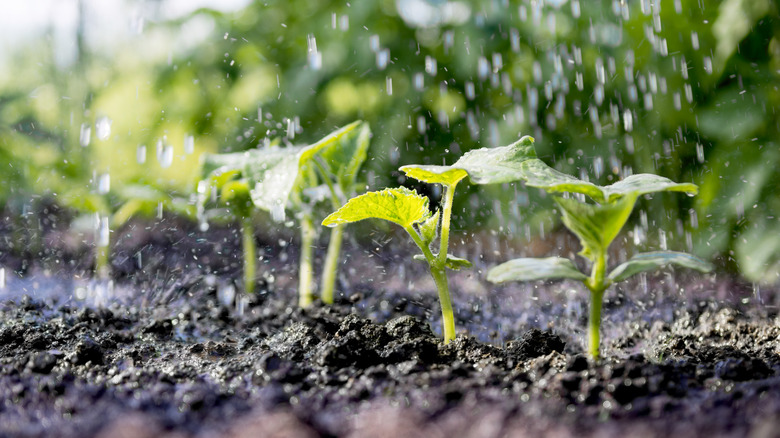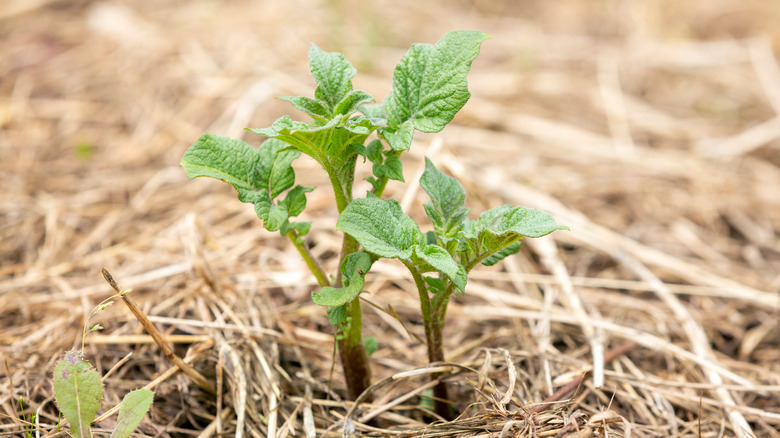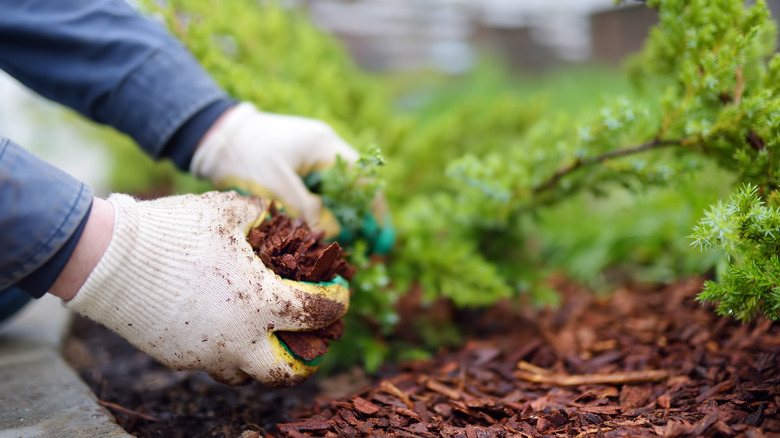The Best Type Of Mulch If You Live In A Wet Climate
Gardeners living in wet climates often find themselves navigating a unique set of challenges that set their planting experiences apart. While abundant rainfall might seem like a boon for plants, it can quickly transform from a blessing into a problem, potentially leading to waterlogged soil, root rot, fungal diseases, and other issues detrimental to plant health. This is where mulching with straw comes into play.
Straw mulch is a fantastic choice for regions with high rainfall or consistently wet climates for several reasons. It's a tried-and-true mulching material that can benefit your garden significantly. It's an excellent moisture regulator in places where excess water is usually a problem. Straw helps by creating a protective barrier between the soil and the raindrops. As the rain falls, the straw absorbs some of the moisture and then slowly releases it into the soil. This ensures a more consistent moisture level, preventing both waterlogged roots during the wet season and drought stress during the dry season.
Other benefits of straw mulch
Straw mulch helps to prevent soil erosion, which can be a concern in areas with heavy rainfall. When rain hits bare soil directly, it can wash away the topsoil and valuable nutrients. Straw mulch acts as a buffer, breaking the fall of raindrops and reducing their impact on the soil, preventing the rainwater from washing it away. It also has insulating properties, which can be advantageous in regions with fluctuating temperatures often seen in wet climates. It helps keep the soil temperature more stable, preventing temperature extremes that can harm plant roots.
Moreover, straw mulch creates a physical barrier that suppresses weed growth. Weeds can be especially problematic in wetter climates where they thrive, so using straw as mulch can save you a lot of time and effort in weeding. It's also crucial to use straw rather than hay for mulching, as hay can contain weed seeds that you definitely want to avoid introducing into your garden. Being an organic type of mulch, straw also helps prevent heavy rainfall from compacting the soil. It decomposes slowly, adding organic matter to the soil over time, enriching the soil structure, and enhancing its water-holding capacity, further benefiting plants in wet conditions.
Other great mulching alternatives
Besides straw, there are several mulching materials particularly well-suited for gardens in soggy settings. Materials such as wood chips and pine bark are also excellent choices for wet climates. They have a porous structure that helps with water absorption and drainage. Pine needle is another popular eco-friendly mulch for wet environments due to its natural ability to shed water. Like straw, it creates a protective layer that minimizes soil erosion and compaction while allowing excess moisture to evaporate. Its fine texture enables it to interlock, forming a cohesive cover that stays in place even during heavy rain. Non-organic mulching materials like gravel or pebbles also work as alternative solutions. These materials are heavy enough to stay in place, don't break down over time, and provide effective drainage, preventing waterlogging. They're particularly suitable for plants that thrive in well-draining conditions.
Gardening in a wet climate requires a thoughtful approach to moisture management, so choosing the right mulch for wet conditions is paramount. Good thing you have a range of choices to choose from. Besides straw, you can also use wood chips, pine bark, pine needles, and pebbles. By using the right type of mulch, you can help create an environment where your plants can flourish despite the challenges posed by excess moisture.


